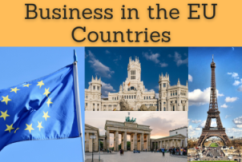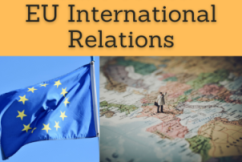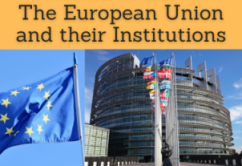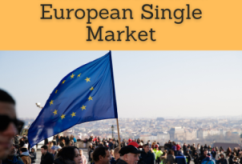Business in Croatia, Zagreb. Croatian Economy
Foreign Trade of Croatia, Logistics, Zagreb. Access to Croatian Market

Key economic sectors in Croatia: agriculture, wood processing, agribusiness, textile, petroleum, metal and chemical, electrical, construction, International Trade, shipbuilding, marine engineering, and tourism
Croatia is the last member to join the European Union
- Introduction to the Republic of Croatia (EU)
- Croatian Economy
- Foreign Trade of Croatia
- Transport and Logistics
- Access to the Baltic-Adriatic Transport Corridor
- Doing Business in Zagreb
- Case Study:
- Agrokor Group
- Duro Dakovic Holding
- Access to the Croatian Market
- Business Plan for Croatia

The educational aims of the Subject “Foreign Trade, Logistics and Business in Croatia” are:
- To analyze the Croatian Economy, Logistics and Global Trade
- To conduct research on business opportunities in Croatia
- To explore the Croatian trade relations with the student's country
- To learn about Croatian free trade agreements (as a member of EU)
- To develop a business plan for the Croatian market
- To analyze the profile of the Croatian companies

The Subject “Foreign Trade, Logistics and Business in Croatia” is included within the curriculum of the following academic programs at EENI Global Business School:

Masters: International Business, Foreign Trade.

Majstor u međunarodnom poslovanju (Croatian Students).
Languages:  or
or  Croacia
Croacia
 Croatie.
Croatie.
- Subject Credits “Doing Business in Croatia”: 1

International Trade, Logistics and Business in Croatia.


Croatian trade agreements:
- Croatia and the European Economic Area
- European Union
- As a member of EU, Croatia is a beneficiary of EU Trade Agreements with Algeria, Ivory Coast, South Africa, South Korea, India, Mexico, MERCOSUR, Moldova, Georgia etc. besides the Customs Union with Turkey
- European Single Market
- The European Union Services Directive
- European Digital Single Market
- European Customs Union
- Central European Initiative
- Adriatic-Ionian Initiative
- Regional Cooperation Council
- Organization of the Black Sea Economic Cooperation (observer country)



- World Trade Organization (WTO)
- Agreement on Trade in Services (GATS)
- Agreement on the Application of Sanitary Measures
- Agreement on Technical Barriers to Trade
- Agreement on Preshipment Inspection
- Agreement on Safeguards
- Trade Facilitation Agreement
- World Customs Organization (WCO)
- Kyoto Convention
- COTIF Convention (Rail)
- BIC (Containers)
- Chicago Convention (ICAO)
- International Maritime Organization (IMO)
- Convention for Safe Containers
- Istanbul Convention
- Customs Convention on Containers - not a member
- Convention Harmonization of Frontier Controls of Goods
- CIM & CIT Rules (Rail Transport)
- International Road Transport Union (IRU)
- TIR Convention
- Guidelines on Safe Load Securing for Road Transport

- Economic Commission for Europe
- European Union
- European Central Bank
- European Investment Bank
- European Bank for Reconstruction and Development (EBRD)
- European Union-CELAC Summit
Croatia was a member of the Central European Free Trade Agreement (CEFTA).

- Asia-Europe Meeting
- United Nations
- World Bank
- World Trade Organization (WTO)
- International Monetary Fund
- Croatian borders: Slovenia, Hungary, Serbia, Bosnia and Herzegovina, and Montenegro
- Official language of Croatia: Croatian
- Capital of Croatia: Zagreb
- Population of Croatia: 4.3 million people
- Currency of Croatia: Kuna (HRK)
Religion in Croatia: Christianity (Catholicism: 3.6 million).
Croatia belongs to the European Economic Area of Western Civilization.

Croatian Economy.
- The Republic of Croatia belongs to the group of nations with a small and open economies, which are mostly connected to other international markets
- The Republic of Croatia has taken many tangible measures such as modifications and optimizations to existing laws and rectifications to existing procedures to align them with the EU laws and regulations and to facilitate the economic and International Trade activities
- Foreign Direct Investment (FDI) is vital for the restructuration and modernization of the economy of the Republic of Croatia
The Agrokor Group is the largest private company in Croatia and one of the leading regional enterprises employing 33,000 people. The Agrokor Group's core businesses are food and drinks production and Distribution.
(c) EENI Global Business School (1995-2025)
Top of this page









 WhatsApp
WhatsApp